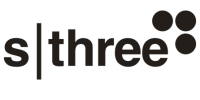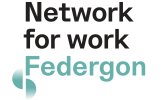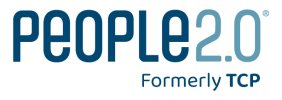De opkomst van de 1-persoon eenhoorn: hoe AI-agenten het ondernemerschap herdefiniëren
De traditionele blauwdruk voor het bouwen van een eenhoorn startup – een miljardenbedrijf – heeft lang legers van talent, jaren van iteratie en miljoenen aan durfkapitaal vereist. Maar er is een grote verschuiving gaande. De oprichters van morgen managen misschien een hybride personeelsbestand van AI-agenten, freelancers en vaste werknemers.
Lees hieronder het artikel over deze shift dat onlangs in Forbes verscheen en doe je voordeel! (artikel in het Engels)
Advances in AI agentic systems, as conceptualized by OpenAI’s framework for autonomous agents, are enabling solo founders to achieve what once demanded entire teams. Welcome to the era of the “one-person unicorn,” where AI agents don’t just augment human effort—they redefine what’s possible for a single entrepreneur.
The Agentic Hierarchy: From Task Runners To Strategic Partners
OpenAI’s agentic levels categorize AI systems by their autonomy and decision-making prowess. At the base (Levels 1-2), agents execute narrow tasks: drafting emails, generating code snippets or summarizing documents. By Level 3, they handle multi-step workflows, like optimizing ad campaigns or managing customer support pipelines. At Levels 4-5, agents evolve into strategic partners, capable of overseeing departments or even entire organizations—balancing budgets, negotiating contracts and making high-impact decisions. Examples include frameworks like OpenAI’s Swarm, an experimental system designed to coordinate networks of AI agents, categorizing them by their autonomy and decision-making prowess
While today’s AI tools hover between Levels 2 and 3, their trajectory is clear. By 2028, Gartner predicts that 33% of enterprise software applications will include agentic AI, enabling 15% of day-to-day work decisions to be made autonomously. These systems are not just streamlining work—they’re compressing the organizational hierarchy into a single interface.
The Solo Founder’s Playbook: AI As Co-Founder
Consider a solo founder launching a startup in 2025. Historically, it would require specialized teams for coding, design, marketing and operations. Today, a solo founder can do a lot more:
- Coding agents can be used to build MVPs in weeks, not months. A single full-stack engineer, guided by AI pair programmers like Github Co-Pilot can architect and deploy functional prototypes at unprecedented speed.
- Generative AI can be employed for instant content creation. Tools like MidJourney and Runway ML produce social media ads, UGC videos and branding assets in minutes, bypassing traditional design bottlenecks.
- LLM-powered workflows can handle customer support, SEO and email marketing. Platforms like Claude 3 or Gemini Advanced draft hyper-personalized campaigns, analyze sentiment and resolve user queries—tasks that once required dedicated staff.
Industry Trends Fueling The Revolution
Three forces are accelerating this shift:
- Democratization Of AI Infrastructure: Cloud platforms (AWS, Google Cloud, Azure) and open-source models (DeepSeek R1, Llama 3, Mistral) have slashed the cost of deploying AI.
- Self-Improving Reasoning Systems: Models like OpenAI’s O1 or DeepSeek R1 enable AI agents to iteratively improve their performance by analyzing past outcomes and adjusting strategies utilizing Mixture of Experts (MoE) architectures. These models dynamically engage specialized subsets of their networks to efficiently handle complex tasks such as advanced mathematics and coding.
- Agent Collaboration: AI agents can now hand off tasks to one another. A coding agent might build a feature, pass it to a testing agent for QA and then notify a deployment agent to push it live—all without human oversight.
Case Study: The AI-Powered Holding Company
At my company we’re stress-testing this model by incubating startups across verticals—voice AI, automated recruiting, medical scribing and more—with teams of one to three people. Here’s how AI agents fill critical roles:
- Product Development: A coding agent translates Figma wireframes into React code, while another debugs APIs. One engineer ships MVP features in two to three weeks.
- Marketing: Video agents storyboard, script, and generate TikTok ads using ElevenLabs for voiceovers and Pika Labs for animation—cutting production time from weeks to hours.
- Operations: An LLM agent trained on HIPAA guidelines manages patient data routing for a healthcare scribing tool, reducing compliance risks.
This approach isn’t about replacing humans but redefining their roles. Founders focus on high-leverage tasks: strategic partnerships, user discovery and ethical AI oversight.
This approach isn’t about replacing humans but redefining their roles.
Challenges: The Flip Side of Autonomy
The rise of one-person unicorns raises critical questions:
- Accountability: Who’s liable when an AI agent makes an error in a medical scribe tool or hiring algorithm?
- Bias Amplification: Will agents trained on biased data discriminate unless they are rigorously audited?
- Economic Disruption: If AI enables solo founders to displace traditional SMEs, how do we retrain displaced workers?
- Regulatory frameworks are lagging. The EU’s AI Act and Biden’s Executive Order 14110 are early steps, but global standards for agentic AI remain fragmented.
The Future: Scaling Impact, Not Headcount
The one-person unicorn model doesn’t eliminate teams—it reimagines them. Tomorrow’s founders might manage a hybrid workforce of AI agents, freelancers and core employees.
For aspiring entrepreneurs, the message is clear: The barriers to building a unicorn are collapsing. With strategic AI adoption, a single visionary can now wield the operational capacity of a mid-sized company. The question isn’t whether one-person unicorns will emerge—it’s how they’ll reshape industries, economies and our very definition of entrepreneurship.
The revolution isn’t coming; it’s already here.
Over de auteur
Kaushik Tiwari is a Thiel Fellow and a Y Combinator-backed founder building an AI holding company, Attack Capital.
Bron: Forbes
Lees ook :














